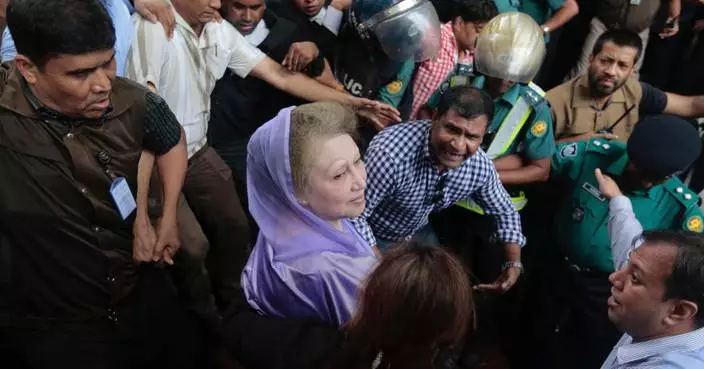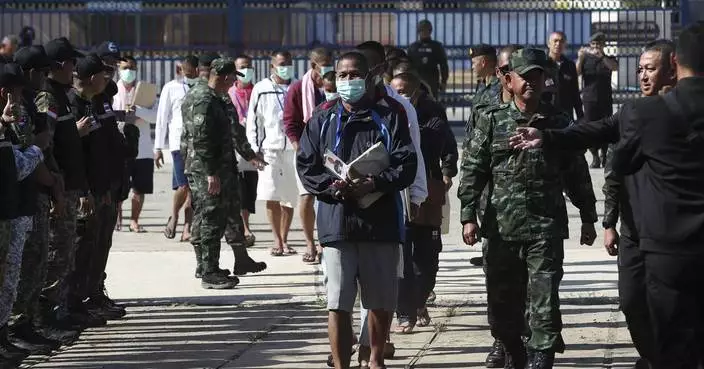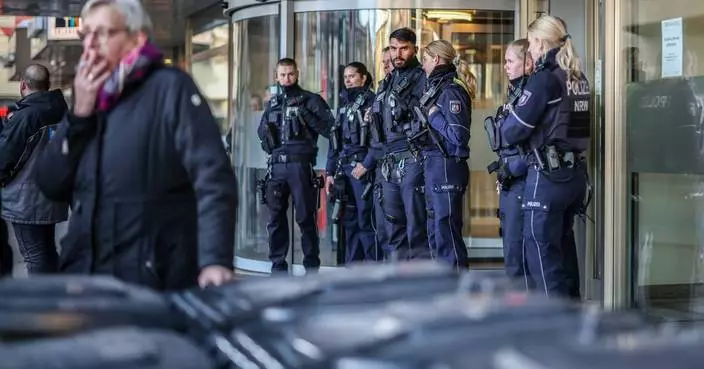CLEVELAND (AP) — Milwaukee pitcher Brandon Woodruff won’t return to the majors quite as early as expected.
Brewers manager Pat Murphy announced before Monday night's game at Cleveland that Woodruff is dealing with tendinitis in his right ankle.
The issue had bothered the two-time All-Star right-hander during a rehabilitation appearance Sunday with Triple-A Nashville, causing the Brewers to delay Woodruff’s long-awaited return from a shoulder injury.
Woodruff threw 39 pitches in 2 1/3 innings against Norfolk before coming out with the injury. He allowed one run and two hits and struck out three.
The 32-year old Woodruff last pitched in a big league game on Sept. 23, 2023. The Brewers announced just before the start of their 2023 NL wild-card series with Arizona that Woodruff wouldn’t be available because of a shoulder problem. He underwent surgery that October and has been working his way back since.
Woodruff can't pitch for a Brewers minor-league affiliate for at least seven days. Murphy said the revised plan is for Woodruff to test the ankle for a couple of minor league starts.
“He tried to pitch on it and it didn’t go well in terms of how he felt," Murphy said. "Our pitching guys and him, they all got together with the front office and Woody made the decision: ‘I’m not going to come back yet.’”
Woodruff's ankle issue represents the latest setback for a Brewers pitching staff that also has Aaron Civale (left hamstring), Nestor Cortes (left elbow), DL Hall (left lat), Aaron Ashby (right oblique) and Robert Gasser (left elbow) on the injured list.
AP MLB: https://apnews.com/hub/mlb

FILE - Milwaukee Brewers' Brandon Woodruff looks on during the eighth inning of a baseball game against the Kansas City Royals, April 1, 2025, in Milwaukee. (AP Photo/Aaron Gash, File)
KYIV, Ukraine (AP) — Russian drones blasted apartment buildings and the power grid in the southern Ukraine city of Odesa in an overnight attack that injured six people, including a toddler and two other children, officials said Wednesday.
Four apartment buildings were damaged in the bombardment, according to regional military administration head Oleh Kiper. Power company DTEK said two of its energy facilities suffered significant damage. The company said that 10 substations that distribute electricity in the Odesa region were damaged in December alone.
Russia has this year escalated its long-range attacks on urban areas of Ukraine. In recent months, as Russia’s invasion of its neighbor approaches its four-year milestone in February, it has also intensified its targeting of energy infrastructure, seeking to deny Ukrainians heat and running water in the bitter winter months.
From January to November this year, more than 2,300 Ukrainian civilians were killed and more than 11,000 were injured, the United Nations said earlier this month. That was 26% higher than in the same period in 2024 and 70% higher than in 2023, it said.
Russia’s sustained drone and missile attacks have taken place against backdrop of renewed diplomatic efforts to stop the fighting.
U.S. President Donald Trump hosted Ukrainian President Volodymyr Zelenskyy at his Florida resort on Sunday and announced that a settlement is “closer than ever before." The Ukrainian leader is due to hold talks next week with the heads of European governments supporting his efforts to secure acceptable terms.
The ongoing attacks, meantime, are inflaming tensions.
The overnight Odesa strikes “are further evidence of the enemy’s terror tactics, which deliberately target civilian infrastructure,” Kiper, the regional head, said.
Moscow has alleged that Ukraine attempted to attack Russian President Vladimir Putin’s residence in northwestern Russia with 91 long-range drones late Sunday and early Monday. Ukrainian officials deny the claim and say it’s a ruse to derail progress in the peace negotiations.
Maj. Gen. Alexander Romanenkov of the Russian air force claimed Wednesday that the drones took off from Ukraine’s Sumy and Chernihiv regions.
At a briefing where no questions were allowed, he presented a map showing the drone flight routes before they were downed by Russian air defenses over the Bryansk, Tver, Smolensk and Novgorod regions.
It was not possible to independently verify the reports.
The European Union’s foreign policy chief, Kaja Kallas, on Wednesday called the Russian allegations “a deliberate distraction” from the peace talks.
“No one should accept unfounded claims from the aggressor who has indiscriminately targeted Ukraine’s infrastructure and civilians since the start of the war,” Kallas posted on X.
Zelenskyy said Wednesday that Romania and Croatia are the latest countries to join a fund that buys weapons for Ukraine from the United States. The financial arrangement, known as the Prioritized Ukraine Requirements List, or PURL, pools contributions from NATO members, except the United States, to purchase American weapons, munitions and equipment.
Since it was established in August, 24 countries are now contributing to the fund, according to Zelenskyy. The fund has so far received $4.3 billion, with almost $1.5 billion coming in December alone, he said on social media.
Ukraine’s air force said Wednesday that Russia fired 127 drones at the country during the night, with 101 of them intercepted by air defenses.
Meanwhile, the Russian Defense Ministry said that 86 Ukrainian drones were shot down overnight over Russian regions, the Black Sea and the illegally annexed Crimea peninsula.
The Ukrainian attack started a fire at an oil refinery in Russia's southern Krasnodar region, but it was quickly put out, local authorities said.
This story has corrected the day of the alleged Ukrainian drone attack on the Russian president’s residence to late Sunday and early Monday.
Follow AP’s coverage of the war in Ukraine at https://apnews.com/hub/russia-ukraine
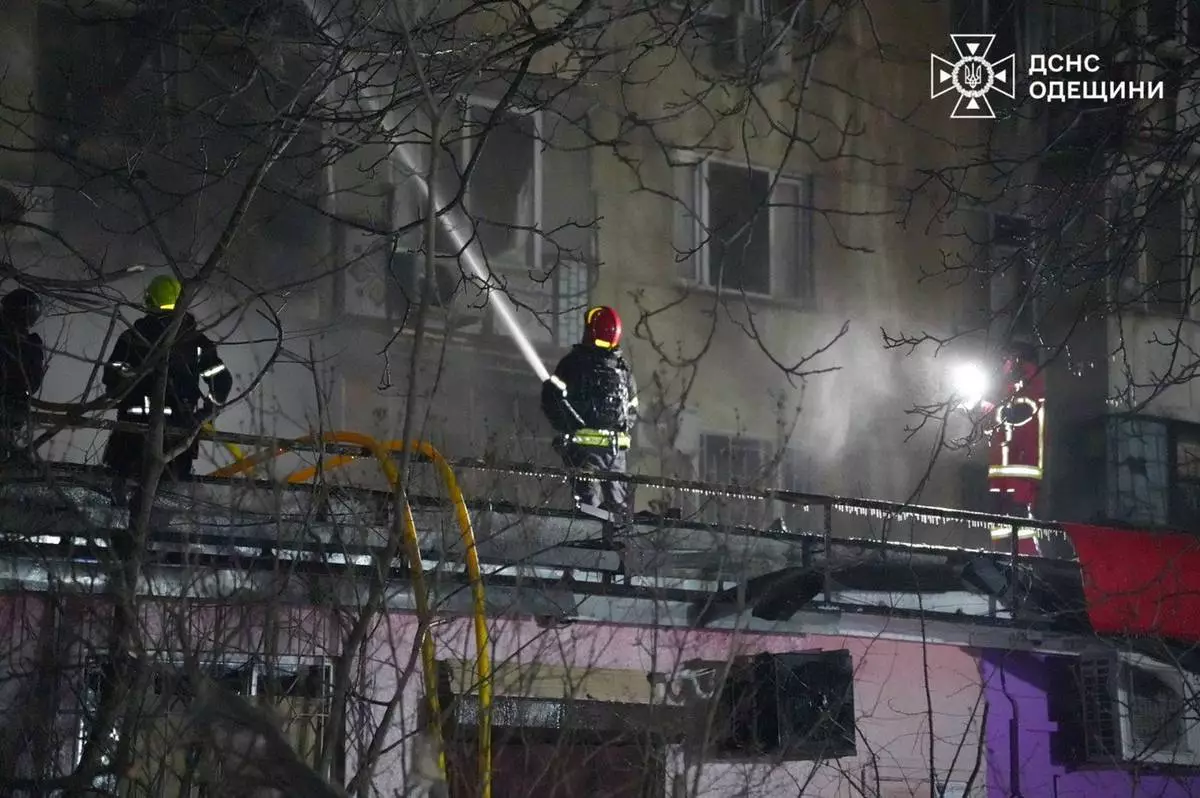
In this photo provided by the Ukrainian Emergency Service, emergency services personnel work to extinguish a fire following a Russian attack in Odesa, Ukraine, Wednesday, Dec. 31, 2025. (Ukrainian Emergency Service via AP)
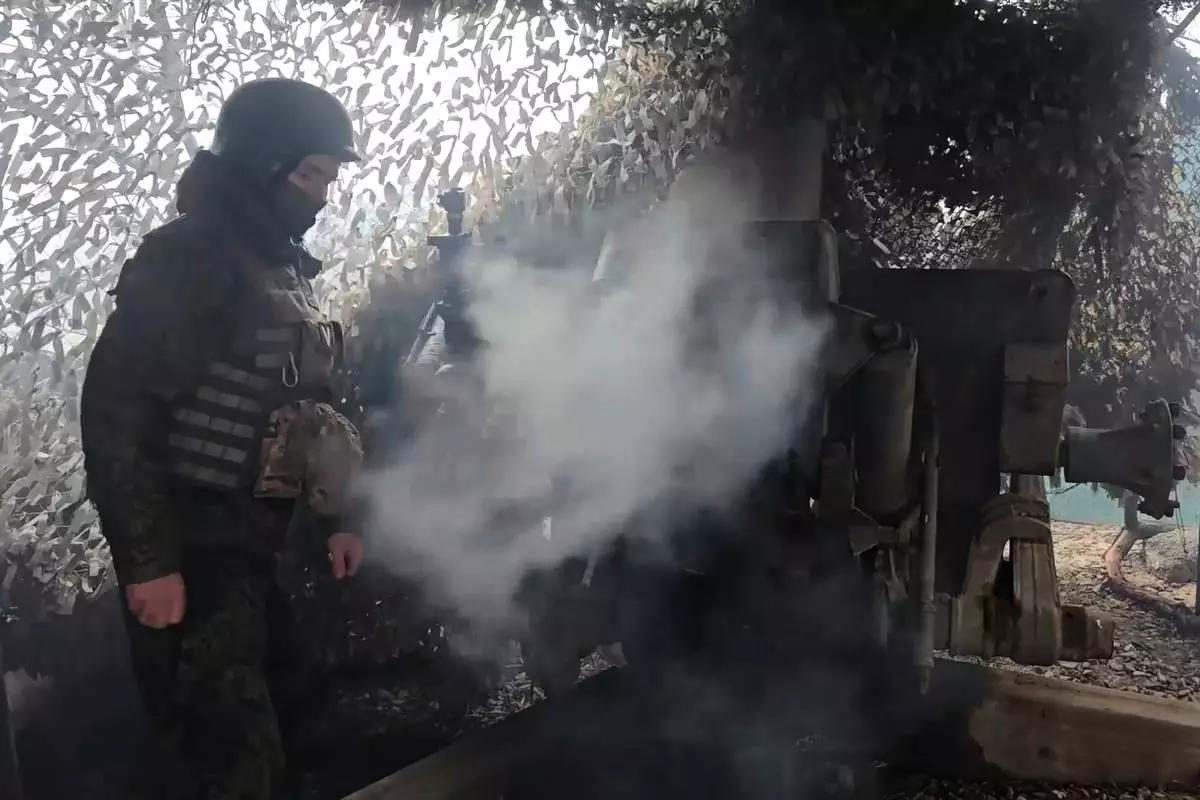
In this image made from video provided by the Russian Defense Ministry Press Service on Tuesday, Dec. 30, 2025, a Russian Army soldier fires from D-30 howitzer towards Ukrainian positions in an undisclosed location in Ukraine. (Russian Defense Ministry Press Service via AP)






